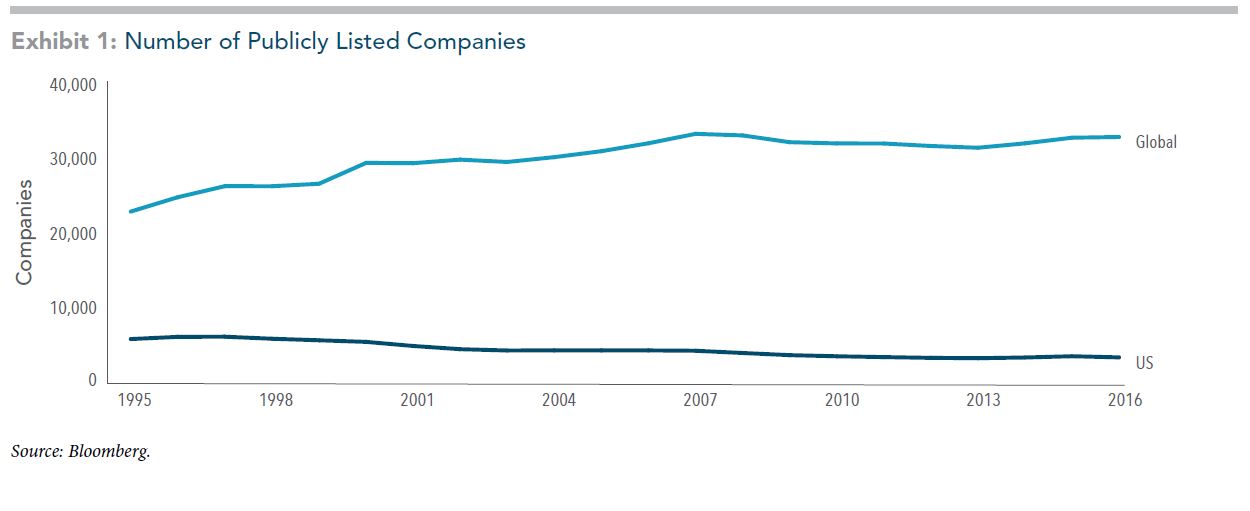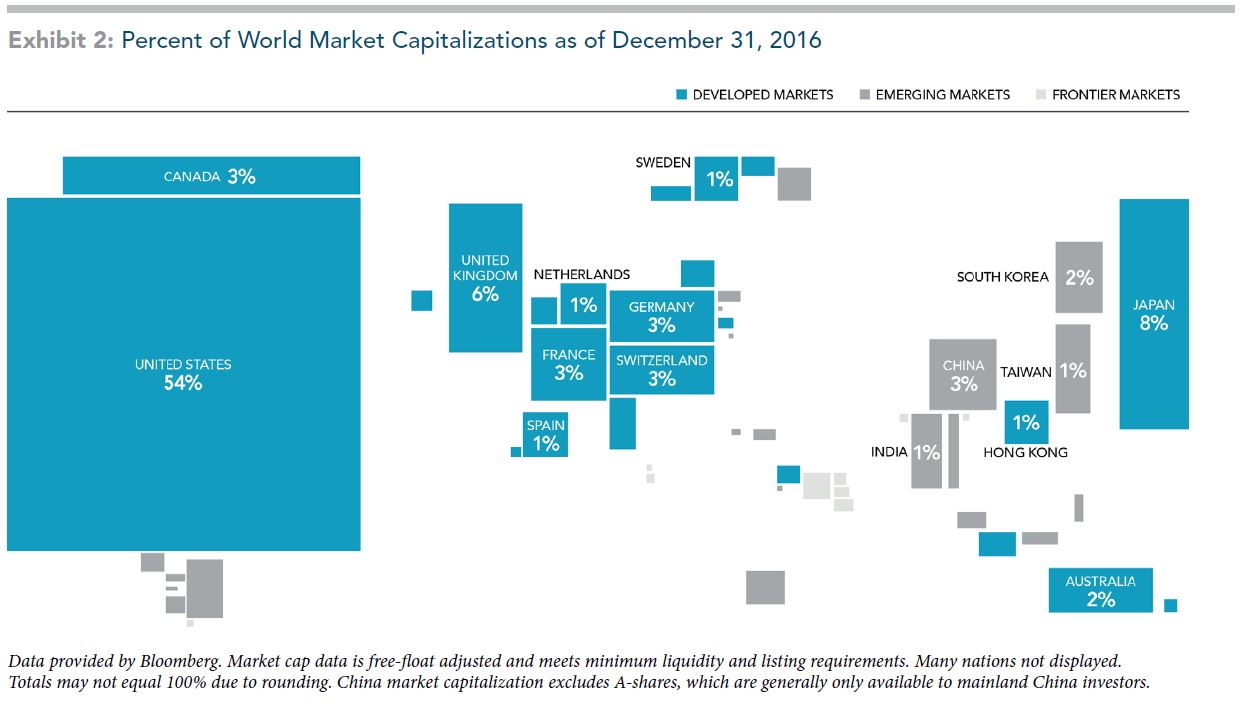- March 28, 2017
- Mike Minter

In the past two decades, there has been a decline in the number of US-listed, publicly traded companies. A case in point: How many stocks make up the Wilshire 5000 Total Market Index? While the logical guess might be 5,000, as of December 31, 2016, the index contained just 3,600 names. In fact, the last time this index contained 5,000 or more companies was at the end of 2005.
Should investors be worried about this change? Does this mean there is a risk of being unable to achieve an adequate level of diversification in your portfolio? I believe the answer to both is no. When viewed through a global lens, a different story begins to emerge – one with important implications for how to structure a well-diversified investment portfolio.
When looked at globally, the number of publicly listed companies has not declined. In fact, the number of firms listed on US, non-US developed, and emerging markets exchanges has increased from about 23,000 in 1995 to 33,000 at the end of 2016.
 While it is true that in the US there are fewer publicly listed firms today than there were in the mid-1990s, it’s clear that the increase in listings both in developed markets outside the US and in emerging markets has more than offset the decline in US listings.
While it is true that in the US there are fewer publicly listed firms today than there were in the mid-1990s, it’s clear that the increase in listings both in developed markets outside the US and in emerging markets has more than offset the decline in US listings.
A GLOBAL APPROACH
In the US, with thousands of stocks available for investment today, it is unlikely that this change will meaningfully impact an investor’s ability to efficiently pursue equity market returns in broadly diversified portfolios. It is also important to note that a significant portion of the publicly available global market cap remains listed on US exchanges.

As noted in Exhibit 2, the weight of the US in the global market is approximately 50–55%. For comparison, it was approximately 40% in 1995.
The global equity market is large and represents a world of investment opportunities, nearly half of which are outside of the US. While diversifying globally implies an investor’s portfolio is unlikely to be the best performing relative to any one domestic stock market, it also means it is unlikely to be the worst performing.
Diversification provides the means to achieve a more consistent outcome and can help reduce the risks associated with overconcentration in any one country. By having a truly global investment approach, investors can capture returns wherever they occur.
CONCLUSION
While there has been a decline in the number of US-listed, publicly traded companies, this decline has been more than offset by an increase in listings in non-US markets. The implications for investors today are clear – to build a well-diversified portfolio, an investor must look beyond any single country’s stock market and take a global approach.
Source: Bloomberg, Dimensional Fund Advisors




